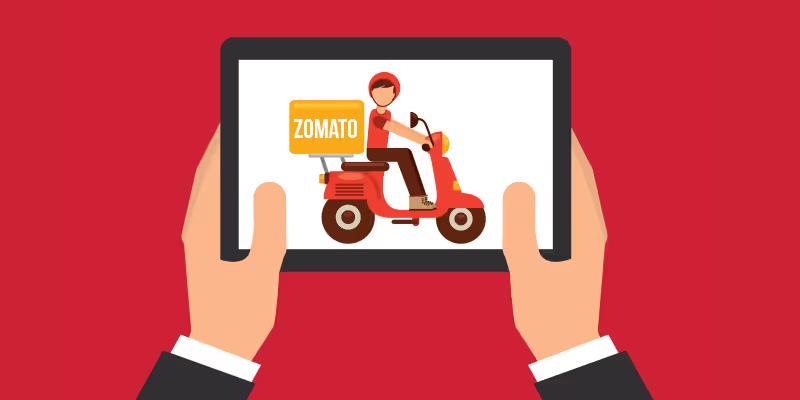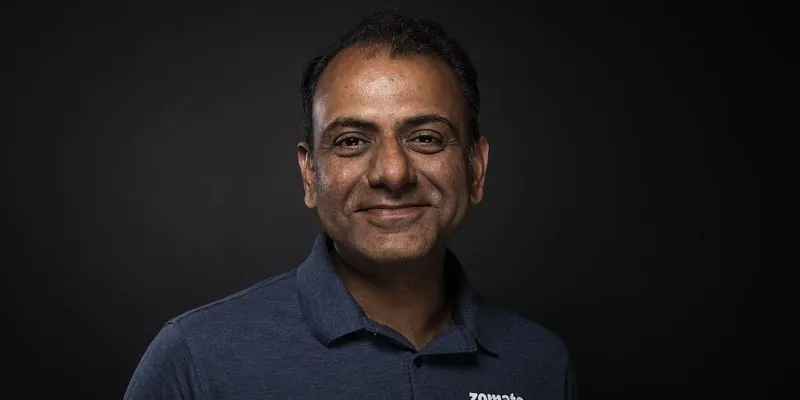'Ghar ka khana' is not having its best time, says Zomato’s Mohit Gupta
In this episode of Prime Venture Partners podcast, Mohit Gupta, CEO of Food Delivery, Zomato, talks about the food delivery space during COVID-19.
In 2018, online food delivery and restaurant discovery giant announced Mohit Gupta as its new Co-founder. An alumnus of IIM Calcutta, Mohit had an illustrious career in the Indian corporate space.
Mohit started his career with PepsiCo and went on to work there for a decade. Later, he joined as the COO, before joining Zomato in 2018 as the CEO of Food Delivery. Across his stints as VP (Marketing) at PepsiCo, MakeMyTrip, and Zomato, Mohit has built new businesses, taken them to profitability, scaled market-leading businesses, created new market segments, and mentored startups as well.
In the recent episode of Prime Venture Partners Podcast, a series featuring the makers and doers of the startup ecosystem, Mohit spoke to Managing Partner of Prime Venture Partners Amit Somani on ‘thinking like a leader’.

Listen to the podcast here.
Food delivery during COVID-19
A lot has been discussed and debated regarding online food delivery since the very beginning of the pandemic. However, Mohit says, “The adoption of a whole bunch of online services increased significantly because of COVID-19.”
In fact, he says, that ‘fence sitters have been tipped over’ and restaurants, even high-ends and gourmets, who were earlier not participating for delivery, have now started participating in delivery, meaningfully.
“We are definitely seeing penetration of food delivery and usage of food apps going up significantly, across all segments,” Mohit adds.
Additionally, Mohit believes that while dining out may be deeply depressed due to the pandemic, it is not going away anytime soon. “The need for people to hang out together, to be social, and to celebrate together is a deep, long-term human need and I think, therefore, dining out continues to have a bright future,” he adds.
Talking about food ordering trends, Mohit says that orders for uncooked food such as salads and sushi have definitely gone down as people are ordering more well-cooked food items. Zomato has also noticed a shift towards indulgent food types. As people are getting more time to cook, orders for home cooked meals have gone down and outside food has increased.
“Healthy food or ghar ka khana, which was emerging to be a fairly large category, is definitely not having its best time right now,” Mohit adds.

Mohit Gupta
Building a successful business
Almost a decade ago, founder Deepinder Goyal and Pankaj Chaddah started Foodiebay as a food review site. Over the years, it transformed into Zomato, a full stack food provider.
Mohit attributes the transformation and success of Zomato to a “unique blend of business acumen, product design, and user understanding expertise.”
Secondly, he says, being brutally open and honest with oneself is a critical attribute to help build the spine of any successful business. Thirdly, pathological flexibility to experiment with everything even when one is biased or holds something sacred. And finally, having the capacity to come in from behind and rising as the market leader, and having an ambition and a big vision helps.
Mohit says that one of the biggest contributors to Zomato’s success in food delivery came with the acquisition of Runner in 2017.
Concept of mega apps in India
Speaking about companies trying to build a mega app -- one that would let users book cabs and flights, and also get delivered from, Mohit says he is not a big fan. What it takes for a mega app to be really successful is being the number one in all the services and categories it is participating in.
“Building a single category itself is so difficult, building multiple categories will be difficult at so many levels. From UX to your domain expertise, to supply chains and everything else around it. So that’s one of the reasons why I think it’s difficult,” Mohit says.
Secondly, he believes the ecosystem plays a vital role. If the most competent answer to a problem emerges as an app, it is likely to be single rather than a mega app. Thus, he does not see mega apps playing out in a market like India.
Hiring a senior
When asked on then factors he would look into if he were to hire someone senior for a young startup, Mohit says, he weighs down on three things -- domain expertise, competence, and most importantly, culture fit and chemistry.
Domain expertise, especially when hiring a senior person, holds 10 to 15 percent weightage. Core competence of the individual attributes another 40 percent. And finally, culture fit holds 50 percent.
“I think there’s nothing more important than culture fit into a company and chemistry with other top leaders in the company whom they are going to work with,” he adds.
Edited by Megha Reddy









